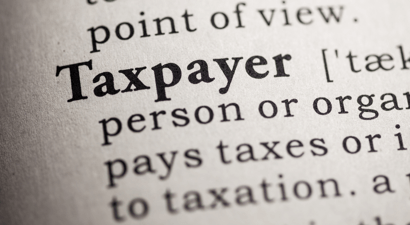Jail Time for Fraudulent VAT Refund Claims
By the Tax Team
In a recent case, Grundling v the State, the Supreme Court of Appeal (''SCA'') handed down a judgement regarding the imprisonment period for the appellant, who was an accomplice in a scheme defrauding the South African Revenue Service by falsifying VAT refund claims between April 2006 and July 2008.
The appellant's late husband completed the monthly VAT returns and passed the returns and tax invoices to the appellant to sign, which the appellant did even though she foresaw the possibility that the information was based on false figures. The appellant was charged with 30 counts of fraud, alternatively 30 counts of theft of money and a second alternative of 30 counts of contravening section 59(1)(a) of the Value-Added Tax Act 89 of 1991 (''VAT Act''). The appellant pleaded guilty to the 30 counts of contravening section 59(1)(a) of the VAT Act. This section has since been repealed by section 235(1) the Tax Administration Act No. 28 of 2011.
The relevant wording of section 59(1)(a) of the VAT Act reads as follows:
''Any person who with intent to evade the payment of tax levied under this Act or to obtain any refund of tax under this Act to which such person is not entitled or with intent to assist any other person to evade the payment of tax payable by such other person under this Act or to obtain any refund of tax under this Act to which such other person is not entitled–
- makes or causes or allows to be made any false statement or entry in any return rendered in terms of this Act, or signs any statement or return so rendered without reasonable grounds for believing the same to be true;
shall be guilty of an offence and liable on conviction to a fine or to imprisonment for a period not exceeding 60 months.''
The court a quo focused on the direct imprisonment imposed for theft of money and for fraud and proceeded to impose an imprisonment period of 10 years for the contravention of section 59(1)(a) of the VAT Act. The appellant appealed to the High Court for a reduced period of imprisonment.
The High Court considered the 10 years imprisonment to be too harsh, it however only reduced the imprisonment period to 8 years as it was of the view that the appellant knew that her actions were fraudulent and she knowingly participated in the scheme.
On appeal from the High Court, the SCA stated that imprisonment of 10 years was ''shockingly inappropriate'' and the imprisonment of 8 years was but a mere adjustment from the court a quo's decision. In making its decision, the SCA considered a non-custodial sentence, however, the SCA held that to impose a non-custodial sentence would ''dilute the seriousness of the offences and disregard the impact of the actual loss of R 18 780 334 to the Fiscus.'' The SCA stated that ''a sterner sentence other than a completely non-custodial sentence would reflect the seriousness of the crimes committed.''
In this regard, the SCA proposed that that the imprisonment term be reduced from 8 years to 3 years, taking the mitigating factors into consideration, especially the fact that the primary perpetrator was absent at the time that the matter went to court (he had committed suicide) and that in terms of section 59(1)(a) of the VAT Act, the maximum period for imprisonment for the charges is 5 years.
The message being sent by the Courts is a strong one, namely, where a person intentionally defrauds SARS by submitting false information in an attempt to claim VAT refunds that he is not entitled to, the Courts will enforce the provisions of the Tax Acts and impose a jail sentence.





